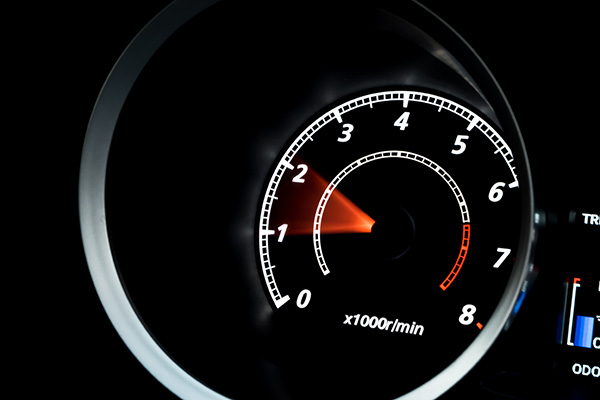
Ever sat at a red light, glanced at your dashboard, and noticed your car's RPM needle fluctuating erratically? It can be unnerving when your car’s RPM goes up and down while idling, especially when it feels like the engine is struggling. But don't worry—this is a common issue with modern vehicles, and several factors can be the cause. From airflow problems to fuel delivery issues, here’s a closer look at why this happens and what you can do about it.
What Is RPM
RPM, or "revolutions per minute," measures how fast your engine's crankshaft is turning. When your car is idling, the RPM should remain steady, typically between 600 and 1000 RPM for most vehicles. If it starts to bounce around, there’s something off.
So, why does the RPM fluctuate? When your car is idling, it should be getting the perfect balance of air and fuel. But if that balance gets disrupted, even slightly, it can cause the engine to surge or stall, leading to inconsistent RPMs. Let’s dig into some of the reasons this might be happening.
1. Dirty or Faulty Idle Air Control Valve (IACV)
The Idle Air Control Valve (IACV) plays a critical role in maintaining a stable idle. It regulates the amount of air that bypasses the throttle when the car is idling. If this valve becomes dirty or malfunctions, it can disrupt airflow, leading to an unstable idle. A clogged IACV may cause RPM fluctuations, where the car seems to rev up and down on its own.
2. Vacuum Leaks
One of the most common causes of fluctuating RPMs is a vacuum leak. Your car's engine relies on a precise balance of air and fuel to function properly. If there’s a crack or hole in one of the vacuum hoses, it can allow extra air into the engine, causing it to idle erratically. A vacuum leak may not always trigger a warning light, but it can definitely affect the engine's idle speed and cause RPM fluctuations.
3. Mass Airflow Sensor (MAF) Problems
The Mass Airflow Sensor (MAF) is responsible for measuring the amount of air entering the engine and adjusting the fuel mixture accordingly. If this sensor gets dirty or stops working properly, it can send inaccurate data to the car’s computer, leading to poor fuel delivery and unstable RPMs at idle. Cleaning or replacing a faulty MAF sensor can often restore proper idle function.
4. Throttle Position Sensor (TPS) Issues
The Throttle Position Sensor (TPS) helps regulate your car’s throttle based on your input, and it can impact the way your car idles. If the TPS is faulty, it can give the car's computer inaccurate information, causing erratic idling. You might also experience jerking or hesitation when accelerating if this sensor isn’t working correctly.
5. Dirty or Clogged Fuel Injectors
Fuel injectors are responsible for delivering the right amount of fuel into your engine. Over time, dirt, debris, and carbon can build up inside the fuel injectors, clogging them and leading to inconsistent fuel delivery. This can cause your engine to idle roughly and the RPMs to fluctuate. Regular maintenance and cleaning of the fuel injectors can prevent this problem.
6. Electrical Issues and RPM Fluctuations
Your car's electrical system plays a big role in how the engine runs. If there are issues with components like the alternator, battery, or wiring, it can affect the idle. A weak or failing alternator, for example, may struggle to keep the electrical system running properly, causing the RPMs to dip or rise unexpectedly when idle.
What Can You Do About It?
The first step in addressing fluctuating RPMs at idle is figuring out the root cause. If you notice that your car’s RPMs are bouncing up and down, here are a few things you can try:
Inspect the Vacuum Hoses
Look under the hood and check the vacuum hoses for cracks or leaks. If you hear a hissing sound, that's a sign of a vacuum leak.
Clean the Idle Air Control Valve
If your IACV is dirty, a simple cleaning might fix the issue. You can either clean it yourself or have a professional take care of it.
Check the Sensors
Have a professional inspect your MAF sensor, TPS, and other relevant sensors. Replacing a faulty sensor can resolve the RPM fluctuations.
Fuel System Maintenance
Regularly clean your fuel injectors and replace the fuel filter as recommended by your vehicle’s manufacturer to ensure smooth engine performance.
Keeping your car well-maintained and addressing minor issues before they become major problems can save you a lot of headaches down the road. If the issue persists, it’s a good idea to have a professional look at it to avoid further damage.
Is your car idling erratically? It could be a small issue that turns into a bigger one if left untreated. Schedule an inspection with Oswald Service and Repair and let our certified technicians diagnose and repair the issue quickly.